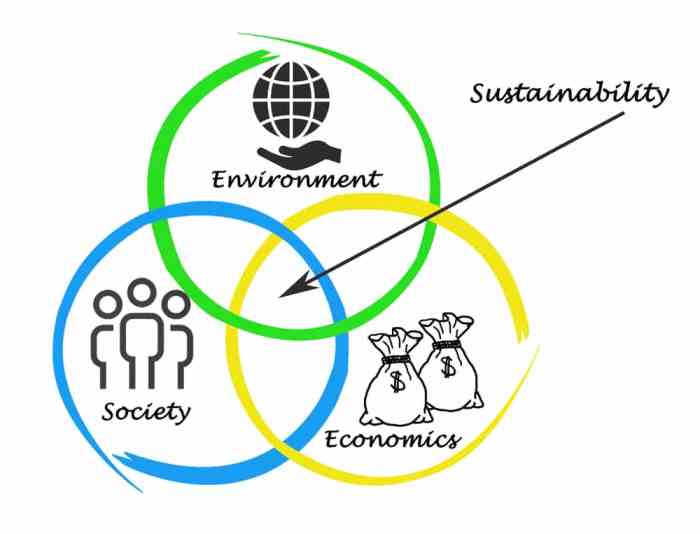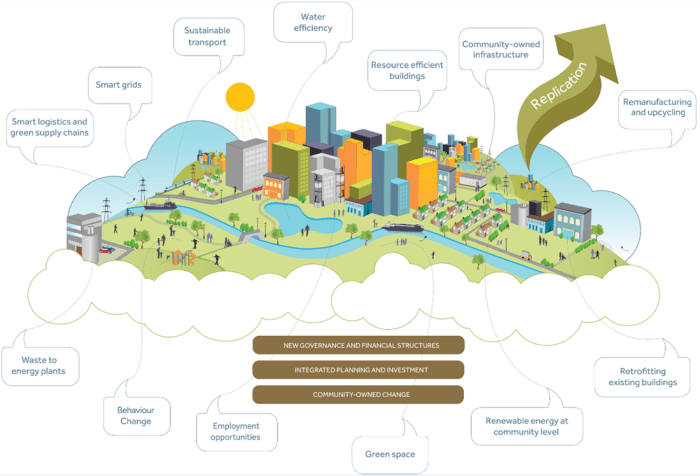
Sustainable agriculture trends are revolutionizing the way we produce food, ensuring that our practices meet the needs of the present while safeguarding the future of our planet. As global awareness of environmental issues grows, farmers and consumers alike are increasingly turning to practices that promote ecological balance, economic viability, and social responsibility.
This shift includes a variety of innovative methods from regenerative farming to the integration of cutting-edge technology in agricultural processes. By exploring these trends, we can gain insight into how sustainable agriculture is not only beneficial for the environment but also essential for the continued success of the agricultural sector.
Introduction to Sustainable Agriculture Trends
Sustainable agriculture is more critical than ever in the face of climate change, population growth, and the depletion of natural resources. This approach not only addresses the need for food security but also promotes environmental health, social equity, and economic viability. As we delve into the various sustainable agriculture practices being implemented globally, it’s essential to recognize the role of technology in enhancing these trends.
Importance of Sustainable Agriculture
Sustainable agriculture emphasizes the efficient use of resources to meet current food demands without compromising the ability of future generations to meet theirs. It encompasses a wide range of practices, including organic farming, agroforestry, and permaculture. These methods help in preserving biodiversity, improving soil health, and reducing dependence on synthetic chemicals.
Types of Sustainable Agriculture Practices
Across the globe, various sustainable agriculture practices are gaining traction. These include:
- Organic Farming: Avoiding synthetic fertilizers and pesticides to promote ecological balance.
- Agroecology: Integrating ecological principles into agricultural practices to enhance productivity sustainably.
- Regenerative Agriculture: Focusing on restoring soil health and increasing biodiversity.
- Permaculture: Designing agricultural systems that mimic natural ecosystems, promoting sustainability.
Role of Technology in Sustainable Agriculture
Technological advancements play a significant role in promoting sustainable agriculture trends. Innovations such as precision farming, drone technology, and biotechnology enhance crop yields while minimizing environmental impacts. Data analytics and IoT (Internet of Things) enable farmers to monitor soil health, weather patterns, and crop conditions, leading to informed decision-making and resource optimization.
Current Trends in Sustainable Agriculture
The landscape of sustainable agriculture is continually evolving, with several trends shaping its future. These trends reflect the growing awareness of environmental issues and the need for sustainable practices in farming.
Top Trends Shaping Sustainable Agriculture
Several key trends are currently influencing sustainable agriculture:
- Plant-Based Diets: A shift towards plant-based eating is driving demand for sustainable farming practices.
- Local Sourcing: Consumers are increasingly seeking locally sourced products, reducing carbon footprints associated with transportation.
- Climate-Resilient Crops: Breeding and selecting crops that can withstand extreme weather conditions are becoming a priority.
Successful Sustainable Farms and Practices
There are numerous successful sustainable farms worldwide that serve as models for others. For instance, Polyface Farm in Virginia employs rotational grazing to improve soil quality while raising livestock ethically. Another example is the Rodale Institute, which has pioneered organic farming research and education.
Consumer Demand for Sustainably Sourced Products
The demand for sustainably sourced agricultural products is on the rise. Consumers are increasingly aware of the environmental and social implications of their food choices, leading to a preference for products that are ethically produced and environmentally friendly. This trend is driving businesses to adopt more sustainable practices to attract conscious consumers.
The Impact of Sustainable Agriculture on Business Accounting
As sustainable agriculture grows, its impact on business accounting in the agricultural sector becomes more pronounced. The integration of sustainability into financial reporting is essential for transparency and accountability.
Financial Reporting in the Agricultural Sector
Sustainable agriculture affects financial reporting by requiring farms to disclose their environmental impact and sustainability initiatives. This transparency builds trust with consumers and stakeholders, potentially leading to increased investment and market opportunities.
Role of Sustainability in Cost Accounting Practices

Cost accounting practices are evolving to incorporate sustainability metrics. This includes evaluating the costs associated with sustainable practices, such as organic certification or energy-efficient technologies. Farms are learning to assess both direct and indirect costs related to sustainability.
Methods for Accounting Environmental Impact
To account for environmental impacts, agricultural businesses are adopting various methods, including:
- Life Cycle Assessment (LCA): Evaluating the environmental impact of products from cradle to grave.
- Carbon Footprinting: Measuring the greenhouse gas emissions associated with farming practices.
- Sustainability Reporting: Providing stakeholders with detailed reports on sustainability initiatives and achievements.
Payroll Considerations in Sustainable Agriculture
Fair wages and benefits play a crucial role in the sustainability of agricultural practices. Sustainable farming not only focuses on environmental factors but also on the wellbeing of the workforce.
Importance of Fair Wages and Benefits
In sustainable agriculture, providing fair wages and benefits is essential for attracting and retaining skilled labor. This commitment fosters a motivated workforce that is dedicated to sustainable practices and contributes to the overall success of the farm.
Structuring Payroll for Seasonal Workers
Seasonal agricultural workers are vital for many farms. Structuring payroll to accommodate their needs includes offering flexible pay schedules and ensuring compliance with labor regulations. Implementing clear contracts can also help set expectations and maintain a positive employer-employee relationship.
Compliance with Labor Laws and Regulations
Navigating labor laws and regulations is crucial for sustainable agriculture businesses. Understanding minimum wage, overtime laws, and worker rights ensures that farms operate within legal boundaries while promoting ethical practices.
Advertising Strategies for Sustainable Agriculture
Marketing sustainable agricultural products requires strategic planning to effectively reach environmentally conscious consumers.
Marketing Plan for Sustainable Agricultural Products
Creating a marketing plan focused on promoting sustainable products involves highlighting their environmental and health benefits. Engaging storytelling that connects consumers to the farm’s mission can enhance brand loyalty.
Effective Advertising Methods
Successful advertising methods for reaching environmentally conscious consumers include:
- Social Media Campaigns: Utilizing platforms like Instagram and Facebook to showcase farming practices and engage with consumers.
- Influencer Partnerships: Collaborating with eco-conscious influencers to reach broader audiences.
- Content Marketing: Creating informative and engaging content about sustainability practices and their benefits.
Branding Strategies Highlighting Sustainability
Branding strategies that emphasize sustainability can differentiate agricultural products in a crowded market. Clear messaging around ethical practices and environmental responsibility can resonate well with consumers seeking sustainable options.
Career Opportunities in Sustainable Agriculture

The field of sustainable agriculture offers diverse career opportunities for individuals passionate about food systems and environmental stewardship.
Various Career Paths
Career paths in sustainable agriculture include:
- Agricultural Scientist: Conducting research to improve crop yields and sustainability.
- Farm Manager: Overseeing operations to implement sustainable practices on farms.
- Food Policy Analyst: Analyzing and advocating for policies that promote sustainable food systems.
Skills and Education Needed
To succeed in sustainable agriculture, individuals should acquire skills in:
- Environmental Science: Understanding ecological concepts and their application in farming.
- Business Management: Learning about farm operations and financial management.
- Communication: Effectively conveying the importance of sustainability to diverse audiences.
Job Market Trends and Demands
The job market for sustainable agriculture is growing, driven by increasing consumer demand for sustainably produced food. As more farms adopt sustainable practices, the need for skilled professionals in this field continues to rise.
Change Management in Sustainable Agriculture
Implementing change within traditional agricultural practices can be challenging but is essential for transitioning to sustainable methods.
Strategies for Implementing Change
Strategies for successfully implementing change in farming practices include:
- Education and Training: Providing resources and training for farmers to understand sustainable practices.
- Incentives: Offering financial incentives for adopting sustainable technologies or practices.
Overcoming Resistance to Sustainable Practices
Resistance to adopting sustainable practices can stem from various factors, including financial concerns and lack of knowledge. Addressing these issues through community engagement and support networks is vital for overcoming obstacles.
Importance of Stakeholder Engagement
Engaging stakeholders, including farmers, consumers, and policymakers, is crucial for successful change initiatives. Building a collaborative environment fosters trust and encourages a collective commitment to sustainable agriculture.
Construction Industry Trends Related to Sustainable Agriculture
Sustainable building practices in agricultural facilities are gaining importance as farms recognize the benefits of constructing eco-friendly structures.
Sustainable Building Practices in Agricultural Facilities
Sustainable building practices involve using materials and designs that minimize environmental impact. Features such as solar panels, rainwater harvesting systems, and energy-efficient designs contribute to sustainable farming operations.
Role of Infrastructure in Supporting Sustainable Farming
Infrastructure plays a critical role in supporting sustainable farming operations. Facilities designed with sustainability in mind can improve efficiency and reduce operational costs.
Innovative Agricultural Construction Projects
Examples of innovative agricultural construction projects include vertical farms that utilize hydroponic systems to grow crops in urban environments. These projects showcase the potential of sustainable practices in addressing food security challenges.
Business Consulting for Sustainable Agriculture
Consulting services are increasingly vital in helping farms adopt sustainable practices, offering expertise and guidance tailored to individual needs.
How Consulting Services Assist Farms
Consultants provide farms with tailored strategies for implementing sustainable practices, including assessments of current operations, recommendations for improvement, and tools for measuring sustainability efforts.
Importance of Strategic Planning
Strategic planning is essential for integrating sustainability into agricultural operations. This involves setting clear goals, assessing resources, and developing actionable plans that align with long-term sustainability objectives.
Case Studies of Successful Consulting Interventions
Case studies highlighting successful consulting interventions demonstrate the positive impact of expert guidance. Farms that have implemented consultant recommendations often see improved productivity and enhanced sustainability metrics.
Ethical Considerations in Sustainable Agriculture
Sustainable agriculture fundamentally involves ethical considerations that extend beyond environmental practices to encompass social and economic dimensions.
Ethical Implications of Sustainable Agriculture
The ethical implications of sustainable agriculture include promoting fairness, equity, and justice within food systems. This includes ensuring that all stakeholders, including workers and consumers, benefit from sustainable practices.
Importance of Animal Welfare
Animal welfare is a critical aspect of sustainable farming. Ethical treatment of livestock is essential for maintaining healthy ecosystems and ensuring the humane treatment of animals.
Role of Corporate Social Responsibility
Corporate social responsibility (CSR) plays a significant role in agricultural businesses. Companies that prioritize sustainability and ethical practices can enhance their reputation and consumer trust, leading to long-term success.
Human Resources Practices in Sustainable Agriculture
Effective human resources strategies are essential for recruiting, retaining, and developing talent in the sustainable agriculture sector.
Effective HR Strategies for Recruiting
Recruiting in the sustainable agriculture sector requires a focus on individuals who share the farm’s sustainability values. Highlighting the farm’s commitment to sustainability in job postings can attract like-minded candidates.
Best Practices for Employee Retention
To retain employees in sustainable agriculture, organizations should foster a positive workplace culture that emphasizes sustainability values. Offering career development opportunities and recognizing employee contributions can enhance retention.
Importance of Training and Development
Investing in training and development is vital for equipping employees with the necessary skills for sustainable practices. Continuous learning opportunities ensure that the workforce remains knowledgeable about best practices and innovations in sustainable agriculture.
The Role of Furnishings and Supplies in Sustainable Agriculture
Sourcing sustainable agricultural supplies and furnishings is vital for minimizing environmental impact and promoting eco-friendly practices.
Sustainable Sourcing of Agricultural Supplies
Sustainable sourcing involves selecting materials and products that are environmentally friendly and ethically produced. This can include organic seeds, biodegradable fertilizers, and eco-friendly packaging solutions.
Environmental Impact of Conventional vs. Sustainable Materials
Comparing the environmental impact of conventional materials with sustainable alternatives highlights the benefits of choosing eco-friendly options. Sustainable materials often result in lower carbon emissions, reduced waste, and less harm to ecosystems.
Innovative Sustainable Products Used in Agriculture
Examples of innovative sustainable products in agriculture include compostable planting pots and biodegradable mulch films. These products contribute to reducing waste and enhancing soil health.
Conclusion
In summary, embracing sustainable agriculture trends is crucial for the health of our planet and future generations. As we witness the rise of eco-friendly practices and consumer demands for sustainable products, it’s clear that the agricultural landscape is undergoing a transformative shift. By prioritizing sustainability, we can create a resilient food system that meets the needs of all stakeholders and supports a thriving agricultural economy.
Popular Questions
What is sustainable agriculture?
Sustainable agriculture is a method of farming that focuses on producing food while maintaining ecological balance, conserving resources, and promoting social equity.
How does technology impact sustainable agriculture?
Technology enhances sustainable agriculture by improving efficiency, reducing waste, and enabling better resource management through data analysis and precision farming techniques.
What are some examples of sustainable agriculture practices?
Examples include crop rotation, organic farming, agroforestry, and the use of renewable energy sources in agricultural operations.
Why is consumer demand important in sustainable agriculture?
Consumer demand drives farmers to adopt sustainable practices, as customers increasingly seek products that are environmentally friendly and ethically produced.
What career opportunities exist in sustainable agriculture?
Career paths include sustainable farming, agricultural consulting, environmental policy-making, and roles in research and development focused on sustainable practices.





